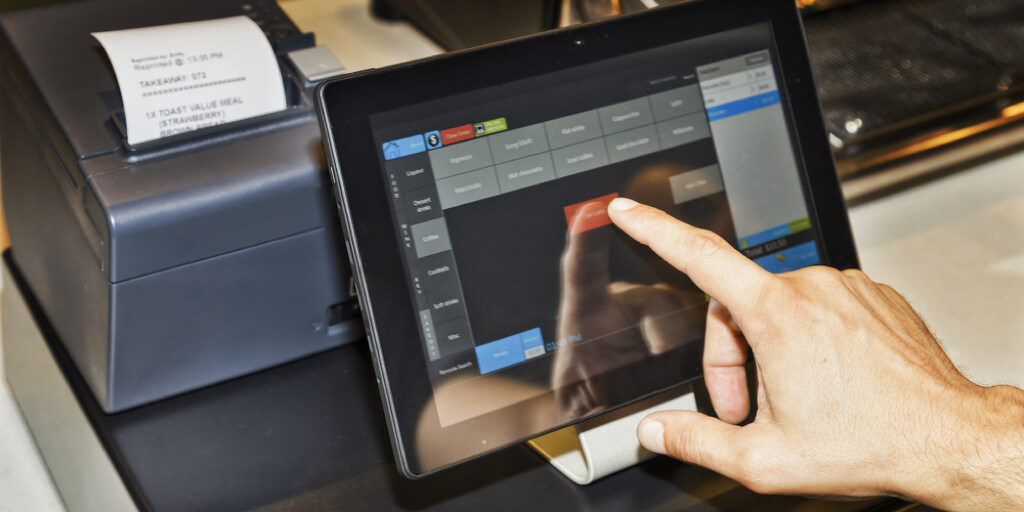It’s still possible to find some cash-only retail businesses, but their numbers are shrinking. Even before Covid-19 pushed consumers toward touchless payment options, cash-only businesses were in decline. It’s just not a customer-friendly policy.
NBC News reported in 2019 that only 18% of US consumers pay for everything with cash. Far more, especially millennials, have switched to debit cards, credit cards, prepaid cash cards and digital platforms from companies including Apple, Zenmo, Zelle and PayPal. In the same report, 30% of consumers said they don’t pay for anything with cash.
So how did we get here? Why do businesses need to give customers so many ways to pay?
Before smartphones became our digital wallets, debit and credit cards were the primary alternatives to cash payments. But as more and more businesses began accepting these types of payments, consumers became comfortable keeping track of their finances electronically instead of manually.
The next phase in the digital payment transformation was through incentives. Both credit cards and many store gift cards began to offer points and other perks more valuable than paying with cash alone. When a credit card offers 1.5% cash back on every purchase made, it’s easy for families to accumulate hundreds of dollars each year just for buying everything they would buy anyway. Cash stopped making financial sense.
The newest payment options allow customers to easily split payments and send money to each other for free. This has resulted in consumers having money in a variety of accounts, and they expect to be able to use most of them to make purchases everywhere they go. Retailers are left with no choice but to offer a wide-variety of payment options to keep their customers happy.
What Is Retail POS?
At the most basic level, a retail point of sale (POS) system makes it easy for a business to accept multiple payment types. It usually consists of a station that has a cash drawer attached. Most stations also have a touchscreen that allows an employee to add items to a digital shopping cart and direct the customer through the payment process.
However, there are a lot of ways a POS can be set up. For example, some stations swivel so that customers can review their order and sign to pay. Others have a separate card reader with a small screen the customer uses. It’s also possible to take payments using nothing more than a smartphone.
Most POS systems allow businesses to pick the components they need and forget about the parts they don’t want. So you’ll find some businesses taking orders via tablets while others only use phones. Some push customers to accept receipts digitally while others print their receipts. The systems are designed to be highly flexible, so every business can customize them to meet their specific needs.
Common Problems Of Retail POS Systems
Even though POS systems are easy to customize, that doesn’t mean they always work flawlessly. The most common issue we see is that a business needs a feature their POS system doesn’t offer. Blue Whale Apps can add whatever functionality you need to your POS system, from making it connect to a legacy technology to creating a user experience that’s completely new.
Another issue we see frequently is that a business already has an app, but the POS system can’t interact with it. Rather than using whatever app is provided by the POS vendor, which may not match the brand of your business very well or offer the features you need, a better choice is to allow Blue Whale to connect your app to the system. We can manage all the backend details so your branding and POS system work seamlessly together.
What To Look For In A Modern Retail POS System

POS technologies are always improving, but you should expect yours to offer a lot more than just a variety of payment options. The list below includes some of the features the best systems provide:
Inventory Management:
You can set limits that trigger notifications when inventory items are running low. It should also be possible to reorder items from within the interface. This saves time and reduces inventory mistakes related to under and overstocking.
Digital Gift Cards:
One of the best ways to boost your sales is with gift cards. Rather than paying to print and maintain customer cards, it’s easier to provide everyone with a digital account. They can see their gift card balances online and send them to their family and friends without much effort.
Employee Time Clock:
Rather than keeping a rusty time clock in the back of a business, POS systems allow employees to clock-in using their phones or stations at your retail locations. You can also manage their hours and make schedules.
Financial Reports:
A few taps on the screen will show in real-time how many sales have been made and what items are popular. Trend reports are available in most systems in addition to reports that integrate with popular tax software.
Online Ordering:
Not all customers want to wait to pay, so online orders simplify the process. Customers can select a time to pick up their items or have them delivered.
Integrated Mobile App:
Aside from a mobile ordering option, the real benefit of a mobile app is that it allows you to send your customers notifications about sales and new items. This is a great way to reduce your advertising costs because text messages are free.
Why Clover Is Worth Considering
Clover is one of the leading POS systems on the market. It offers all the options listed above and many more, such as tabletop POS stations and a robust, fully-customizable rewards program for customers.
But what really makes Clover stand out from its competitors is the development ecosystem it has created. It was specifically designed so that developers can access it’s API to add new features and expand its abilities without going through any red tape.
Blue Whale Apps Can Fine-Tune Your POS System
Blue Whale has extensive experience building and customizing Clover apps. No matter what you want to achieve, we can make it happen in Clover or just about any other POS system you choose.
Our team specializes in end-to-end development for Fortune 1000 businesses and government agencies. Recent projects have included apps within the healthcare, technology, public utilities, entertainment, retail, consumer products and automotive industries. And last year, Blue Whale Apps was named the #1 Mobile App Developers by AppFutura, Clutch, and Good Firms in 2019. Contact us today to make your POS experience one your customers will trust and recommend to all their friends.








